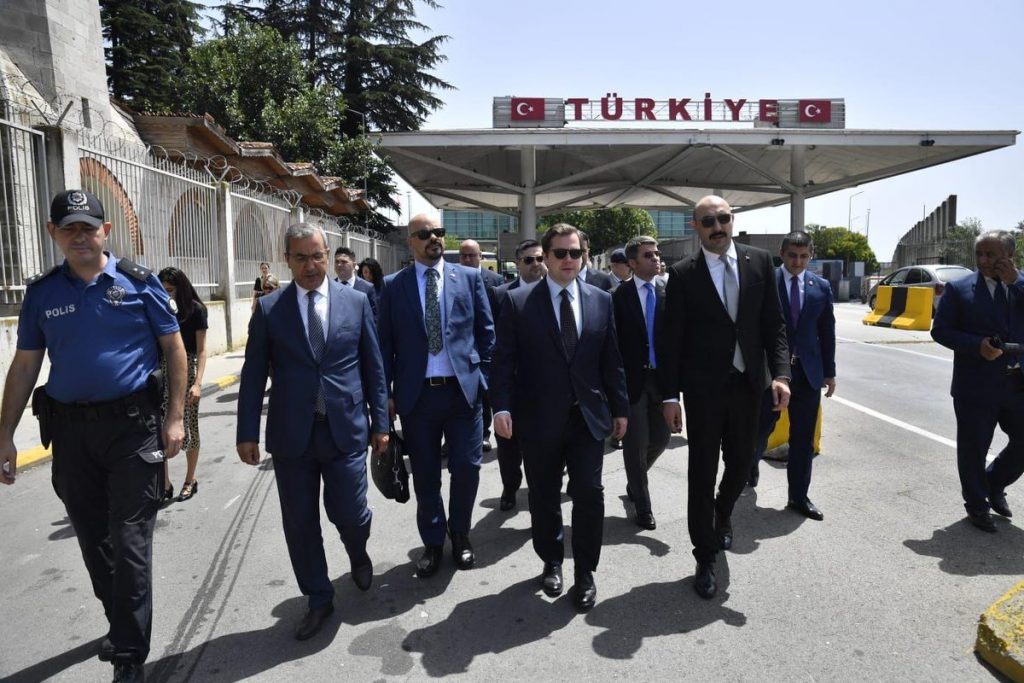The British and Turkish governments have agreed to step up their joint operations to tackle organised immigration crime by disrupting their migration routes and supply chains. The details were announced in London earlier this week.
The new agreement includes resources by the UK to help establish a new centre in Türkiye, run by the Turkish National Police, which will act as a new operational “Centre of Excellence” to tackle criminal gangs involved in people smuggling.
According to a statement from the Home Office, the new centre will “enrich existing expertise in both countries with respect to activities aimed at disrupting criminal networks organising illegal journeys”. It will build on existing collaboration between British and Turkish law enforcement agencies, allowing operational staff to act more quickly on information.
Part of the agreement will see the UK deploy officers from its National Crime Agency and Home Office Intelligence in Türkiye to work alongside their Turkish counterparts. Deeper collaboration is expected to create more and a faster exchange of customs data, information and intelligence feeds between British and Turkish authorities, enabling them to better target the people smugglers and disrupt their network.
The development follows Immigration Minister Robert Jenrick’s visit to Türkiye last month where he met with his Turkish counterparts to discuss ways of improving intelligence sharing and cooperation with the Turks.
Whilst in Turkiye, the minister visited the Kapıkule checkpoint on the Turkish-Bulgarian border to see first-hand existing operations being used to target organised crime. Kapıkule, in Edirne Province, forms the largest and busiest border crossing point in Europe.
We must tackle people-smuggling gangs orchestrating small boat crossings by pursuing them at every stage of the journey.@RobertJenrick visited a range of countries to build cooperation in breaking these networks.
We’re pleased to be deepening of our partnership with Turkey as… pic.twitter.com/SJNeFEgIfb
— Home Office (@ukhomeoffice) August 9, 2023
Keen to stress the importance of close collaboration between the UK and its international partners on this issue, the Immigration Minister has undertaken similar visits to other states in recent months, including Bulgaria, Belgium, Tunisia, and Italy, to discuss how best to combat people smuggling.
The visits have paved the way for other new agreements, including with Bulgaria and Georgia, as well as strengthened partnerships with France and Albania. According to the Home Office, these new and improved arrangements have resulted in a 90% drop in Albanian small boat arrivals in the first quarter of 2023, compared to the same period last year, and a 40% increase in the number of illegal crossing attempts prevented by the French last year, compared to the year before.
We need a network of allies to dismantle the network of people smugglers.
Today we’re announcing a new partnership with Turkey on illegal migration.
We will be working closely together in the shared fight against organised immigration crime, to make our countries safer. 🇬🇧 🇹🇷 pic.twitter.com/nEcfDQykfG
— Robert Jenrick (@RobertJenrick) August 9, 2023
Following the latest deal with Turkiye, Immigration Minister Robert Jenrick said: “Illegal migration is a global challenge, and this new partnership with Türkiye cements our two countries as foremost strategic partners, working together in the fight against organised immigration crime.
“We will be intensively sharing intelligence, people and technology to disrupt and dismantle people smuggling gangs and the manufacture and supply of materials which enable small boat crossings.”
“Having met our partners in Europe, North Africa and indeed Türkiye recently, I’ve seen first-hand the benefits our increased cooperation has on stopping the boats. I am determined that the UK is a leading force in tackling illegal migration and a partner to all those allies who share our determination to defeat it,” the minister added.
Part of the challenge includes disrupting the supply of hundreds of small boats and their parts across Europe, which enable the people smugglers to operate crossings across the Mediterranean and the English Channel. More work on this and related issues will be taken up at the next UK-Türkiye Migration Dialogue meeting taking place in London this autumn.




